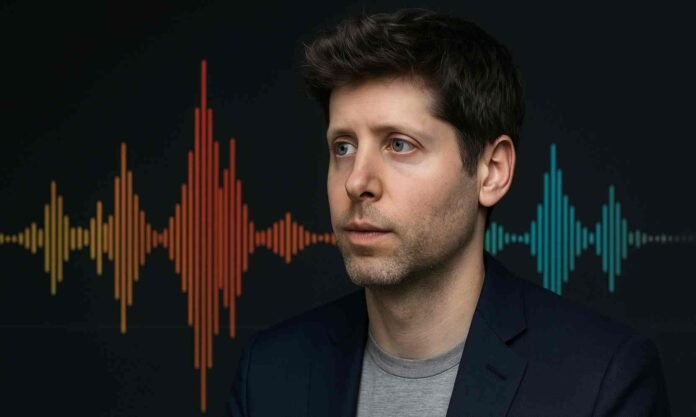- OpenAI is developing a generative AI music tool that can create songs from text or audio prompts.
- The company is working with Juilliard students to train the model using annotated music scores.
- Legal questions remain as OpenAI faces ongoing copyright lawsuits.
- AI music is booming, with nearly a third of new tracks on some platforms now AI-generated.
OpenAI, now valued at around 500 billion dollars, is reportedly preparing to make a major push into artificial intelligence–powered music creation. According to sources familiar with the project, the company behind ChatGPT and the Sora video tool is developing a new system that can compose music directly from text or audio prompts.
OpenAI’s Next Creative Leap
The new AI music tool could allow users to type a short description or upload an audio clip and receive a matching piece of music in return. People working on the project say it might be capable of adding background soundtracks to videos or creating full instrumental backing for singers. What remains unclear is whether OpenAI will go as far as producing complete songs from scratch, as some of its competitors already do.
The move puts OpenAI in direct competition with existing music generation platforms such as Suno, Udio, Boomy and Beatoven. Some of these companies have been caught up in lawsuits filed by major record labels accusing them of training their systems on copyrighted material without permission.
Building a Musical Brain with Juilliard
To give its upcoming system a stronger foundation in music theory and structure, OpenAI has reportedly teamed up with students from The Juilliard School in New York. The students are said to be helping annotate music scores, a process that provides the detailed data needed to train AI on melody, rhythm and harmony.
Insiders have not said when the new music tool will be released. It is also not known whether it will stand alone as a separate product or appear as part of ChatGPT or Sora. The company has remained quiet about how it plans to license or source the music data that will train the model, a sensitive issue in the music industry.
Legal Clouds Still Hanging Over OpenAI
This new venture comes while OpenAI is still facing several copyright lawsuits. Over the past two years, the company has been sued by media outlets, author groups and music licensing organizations.
The complaints accuse OpenAI of using copyrighted material to train its models without proper authorization. One case was brought by GEMA, a German licensing agency, which claimed that ChatGPT reproduces copyrighted song lyrics without payment.
Despite these challenges, OpenAI has also signed legitimate licensing deals with some content owners, including Shutterstock, which gave the company access to its image and audio library.
Interestingly, this is not OpenAI’s first experiment in music. Back in 2020, before the company became a tech powerhouse, it launched a system called Jukebox that could generate raw audio in various musical genres.
Although Jukebox was eventually discontinued, it showed an early glimpse of how artificial intelligence could mimic the structure and style of human music.
A Rapidly Expanding AI Music Landscape
OpenAI’s move comes at a time when AI-generated music is spreading at record speed. The streaming platform Deezer recently revealed that nearly 28 percent of the tracks uploaded to its service were created entirely by AI. That number was only 18 percent in April, a sharp rise in just a few months.
So-called “AI artists” are also gaining ground. These virtual personas release songs entirely made by artificial intelligence and have already drawn millions of listens on streaming platforms like Spotify. Their popularity is raising concerns about how royalties are distributed and how much room is left for human musicians in the market.
Opportunity or Threat for Musicians
For creators, OpenAI’s new music tool could offer exciting possibilities. A filmmaker might add an instant soundtrack to a scene. A singer could generate customized instrumentals without hiring a band. However, many artists fear that a surge in AI-generated tracks could flood the market, making it harder for human creators to earn a living.
Listeners, too, could face a changing experience. With AI music filling playlists, it may become harder to tell which songs are human-made and which are synthetic. Some experts warn that this could reshape not only how music is made but also how it is valued.
Waiting for the First Note
So far, OpenAI has not commented publicly on the project or given a launch date. Whether it becomes part of ChatGPT or a standalone app, the company’s arrival in this space will likely shake up the rapidly growing AI music industry.
Follow TechBSB For More Updates

